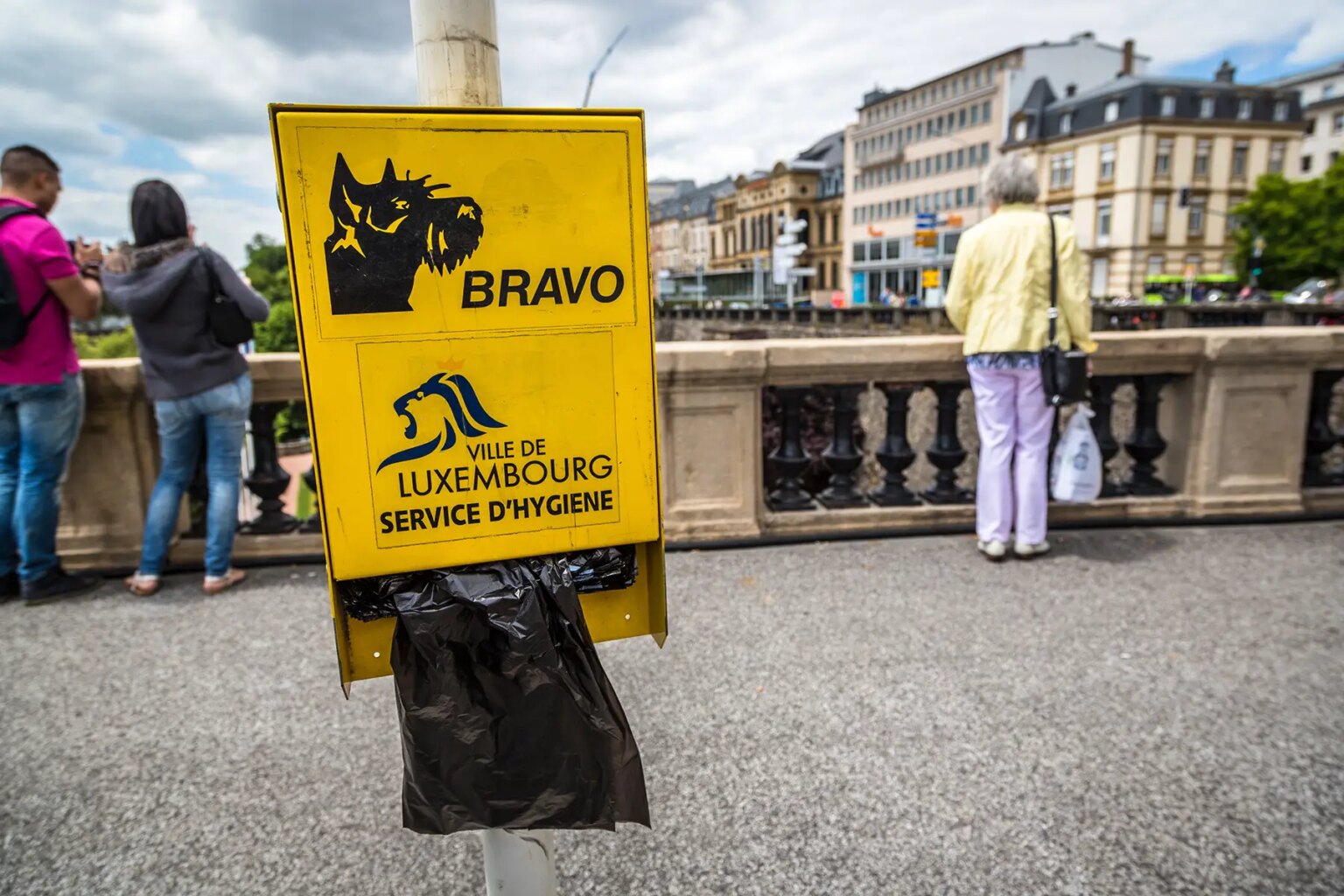Moving abroad can be complicated enough without the added stress of relocating your pet. But luckily for those planning to live in Luxembourg, the country is relatively pet-friendly. Therefore, your furry companion will be welcomed, protected, and cared for.
To help make the transition easier, this article outlines the ins and outs of keeping pets in Luxembourg. It includes the following information:
- Pet culture in Luxembourg
- Pet laws in Luxembourg
- Adopting pets in Luxembourg
- Buying pets in Luxembourg
- Importing pets into Luxembourg
- Registering your pet in Luxembourg
- Pet passports
- Pet healthcare in Luxembourg
- Pet shops in Luxembourg
- Pet services in Luxembourg
- Lost pets in Luxembourg
- The costs of keeping pets
- Selling a pet in Luxembourg
- Useful resources
Sirelo
It's no secret that moving abroad can be stressful. Sirelo's team of removal advisers is here to help. They provide five free quotes from international shipping companies so you can find the best options at the best prices. Take the stress out of your relocation to Luxembourg with Sirelo.
Pet culture in Luxembourg
Luxembourg is a fairly pet-friendly country where dogs, cats, rodents, birds, and fish are the most popular choice among households. For instance, the country’s 42,000 registered dogs are allowed to travel on public transport. They can also dine at many restaurants with their owners. That said, dog owners are obliged to obey some key rules, which you can read more about below.
Pet laws in Luxembourg
As with most European Union nations, Luxembourg has some strict laws when it comes to what species of animals are allowed to be imported and kept in homes across the country. It also has rules for how they should be cared for in line with Luxembourg’s Animal Welfare Act.
Which species are approved?
The Minister of Agriculture imposes strict rules regarding the types of animals you are legally allowed to keep in private homes in the Grand Dutchy. This essentially consists of two lists of species, which are also known as the ‘positive’ lists.

One list is dedicated to domesticated mammals which can be as small as hamsters or guinea pigs, or as large as cows and horses. The other, meanwhile, encompasses all non-mammal species such as caged birds, fish, and non-venomous amphibians or reptiles. Notably, if you wish to own or acquire an animal that is not on either list, you must submit a request to the Luxembourg Ministry of Agriculture.
You also need to seek approval from the Ministry if you wish to adopt or import a dog whose breed is considered to be potentially dangerous. This includes Staffordshire Bull Terriers, Mastiffs, American Staffordshire Terriers, Pit Bulls, and Boerboels.
You must also obtain a certificate to certify that the dog has successfully completed an approved training course. These are organized by the Lëtzebuerger Associatioun vun de Klengdéierepraktiker (LAK). Owners must also submit several other documents to the Ministry.
The Animal Welfare Act
In addition to imposing rules regarding the types of pets you are legally allowed to keep in Luxembourg, the Ministry also provides guidelines for keeping animals in the home.
In 2018, the country passed the Animal Welfare Act which emphasizes that pets are not objects, but living beings entitled to safety, dignity, and well-being. The Act stipulates that all pets should be respected by those who care for them. This includes providing them with food, water, and care, and ensuring that they have enough room to exercise and move around freely.
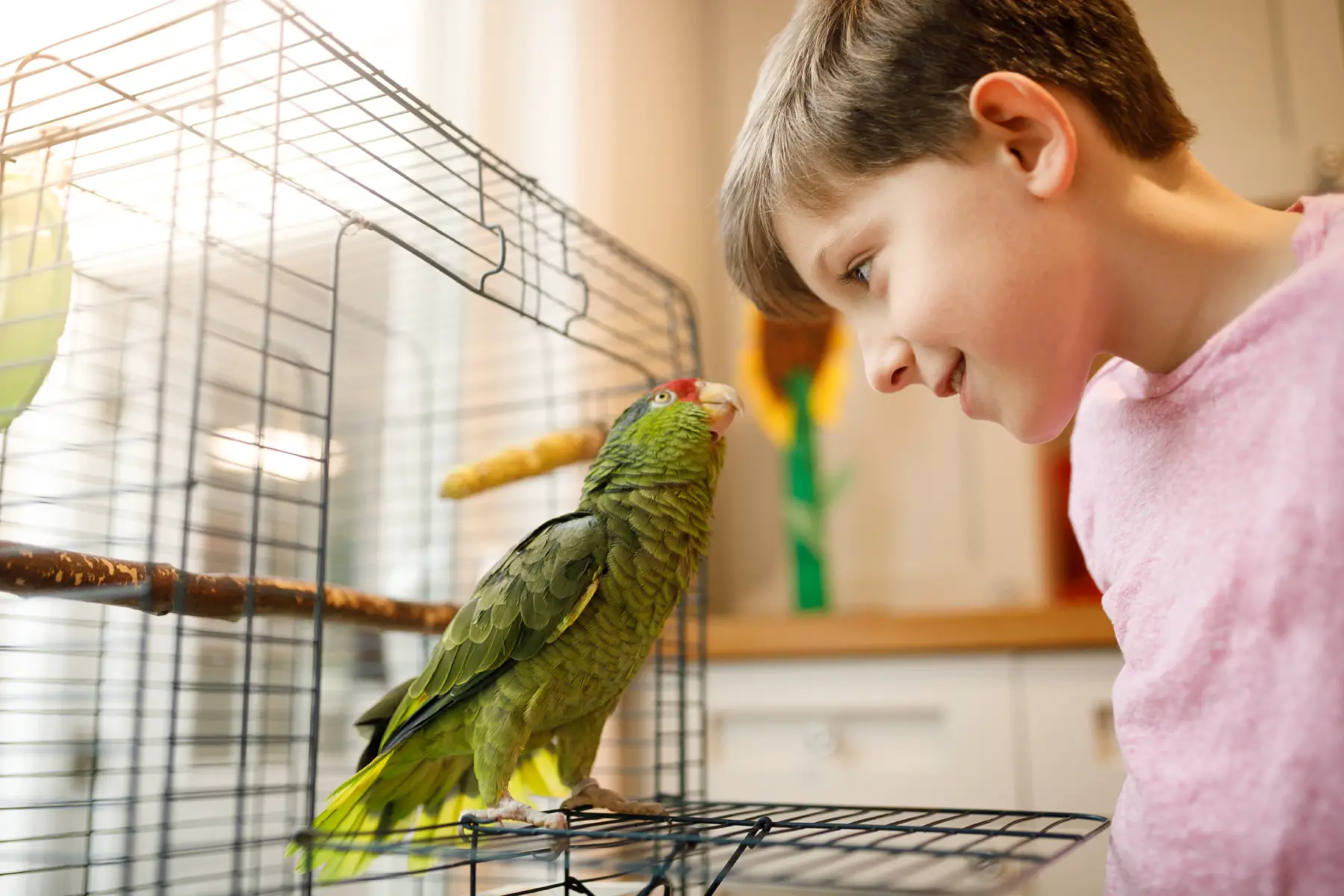
In support of the Act, veterinarians in Luxembourg were also granted the power to issue summons when faced with concerns about a particular animal’s treatment. Therefore, anyone found to be in violation of the Act could face subpoenas or fines.
Notably, Luxembourg was the first country to ban the killing of animals for economic purposes such as shredding male chicks or slaughtering male calves in milk production.
Needless to say, the country is taking great strides in the area of animal welfare; both inside and outside the domestic space.
Laws for dog owners
Dog owners in Luxembourg must follow several laws when they are out about with their four-legged friends. For instance, dogs must be kept on a leash in public areas. Owners should also prevent them from entering playgrounds, grassy areas in parks, pedestrian areas, and school grounds.
Moreover, they should not allow them to relieve themselves on pavements, walkways, cycle paths, in front of entrances, and near car doors.
To help keep Luxembourg clean, there are also 400 distribution points where dog walkers can find plastic bags for picking up their dog’s mess. They can then dispose of it in one of the 3,500 public bins.
Notably, dogs must also be kept on a leash when riding public transport and large breeds must also wear a muzzle.
Adopting pets in Luxembourg
If you are looking to adopt a dog or cat in Luxembourg, there are a few shelters that rehome them. Just keep in mind that these may be run by volunteers. Therefore, their opening hours and level of service may vary. With this in mind, it is best to call ahead to arrange a visit.
The required paperwork may also vary depending on the shelter. That said, you can generally expect to pay for the animal’s vaccinations and sterilizations, as well as the adoption tax. Depending on the animal, the adoption costs could range from €100 to €300.
Some of the biggest animal shelters in Luxembourg include:
- Asile pour Animaux Regional Dudelange – rehomes dogs and cats
- Déierenasyl – dogs and cats
- Schëfflenger Déiereschutzveräin – dogs and cats
- Société Eschoise Protectrice des Animaux (SEPA) – dogs and cats
- SOS Animaux a.s.b.l – mainly focuses on rehoming cats
It is worth noting that many of the animal shelters in Luxembourg also function as rescue centers that search for injured or abandoned pets.
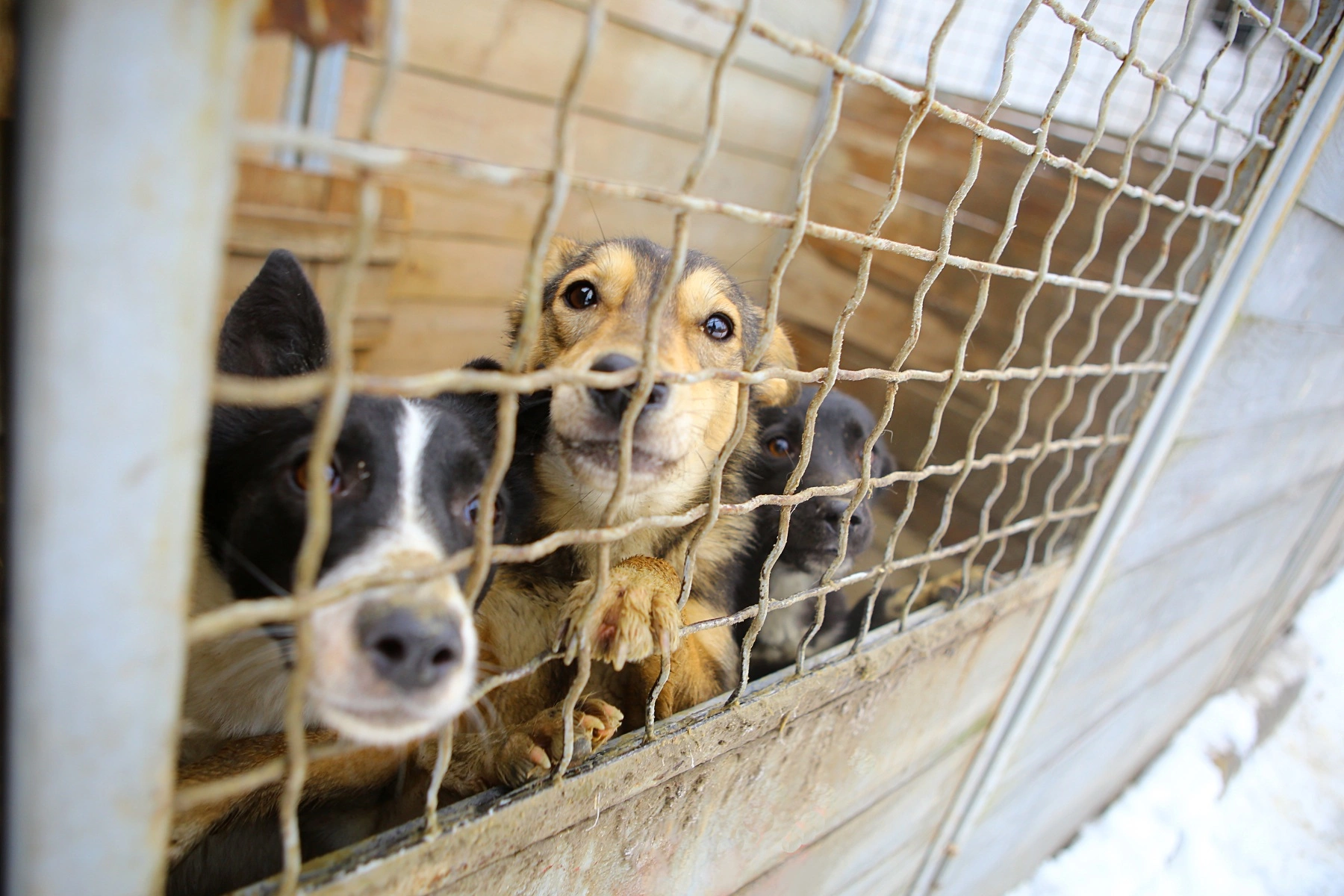
That said, if you find an injured animal on the street, you should call the main emergency number at 112. An on-duty vet will then assist you. If, on the other hand, you have a pet emergency at home, it is best to reach out to SOS Vet, which conducts home visits.
And if you find a dead animal, you should contact your local commune and they will handle the disposing of the body.
Buying pets in Luxembourg
There are several options for buying a pet in Luxembourg. For instance, you can go to a local pet shop where you might be able to find birds, reptiles, rodents, and fish. Alternatively, you can search for pets available for rehoming within your expat network and adopt one informally.
If you are seeking a purebred, it is best to buy one directly from a breeder. Notably, all breeders in Luxembourg are required to be registered and authorized by the Luxembourg Veterinary and Food Administration (ALVA).
That said, each breeder is independent, therefore, you will need to check their individual procedures regarding purchasing, vaccinations, and other logistics. The breeder should also be able to provide you with documentation regarding the pet’s history, personality, and medical records. This will allow you to make an informed and responsible decision.
Here is a complete list of dog breeders and cat breeders in Luxembourg.
Importing pets into Luxembourg
Luxembourg has clear policies for importing cats, dogs, and ferrets into the country.
Coming from an EU country
If you are bringing a dog, cat, or ferret to Luxembourg from within the EU, the animal must be vaccinated against rabies and wait at least 21 days before entering the country. It must also be microchipped and carry an EU Pet Passport issued by a certified vet in your originating country.
Notably, dogs must also be treated for the parasite Echinococcus multilocularis before entering Luxembourg. You will also need to obtain a veterinary certificate if you plan to import one of the following species into the country:
- Amphibians
- Birds (all species except poultry such as chickens, turkeys, ducks, geese, quail, pigeons, pheasants, partridges, and ratites)
- Invertebrates
- Reptiles
- Rodents and rabbits
- Tropical ornamental fish
The certificate, which confirms the animal’s good state of health and absence of diseases, must have been issued 48 hours before the start of the trip.
You can find all the requirements for moving pets within the EU on the European Commission website.
Coming from a non-EU country
Similar rules apply for importing dogs, cats, and ferrets into Luxembourg from non-EU countries. However, there are some extra steps to take.
For instance, the animal must be vaccinated against rabies and wait at least 21 days before entering Luxembourg. It must also be microchipped (or have a clear tattoo made before 3 July 2011), and have a health certificate from the originating country.
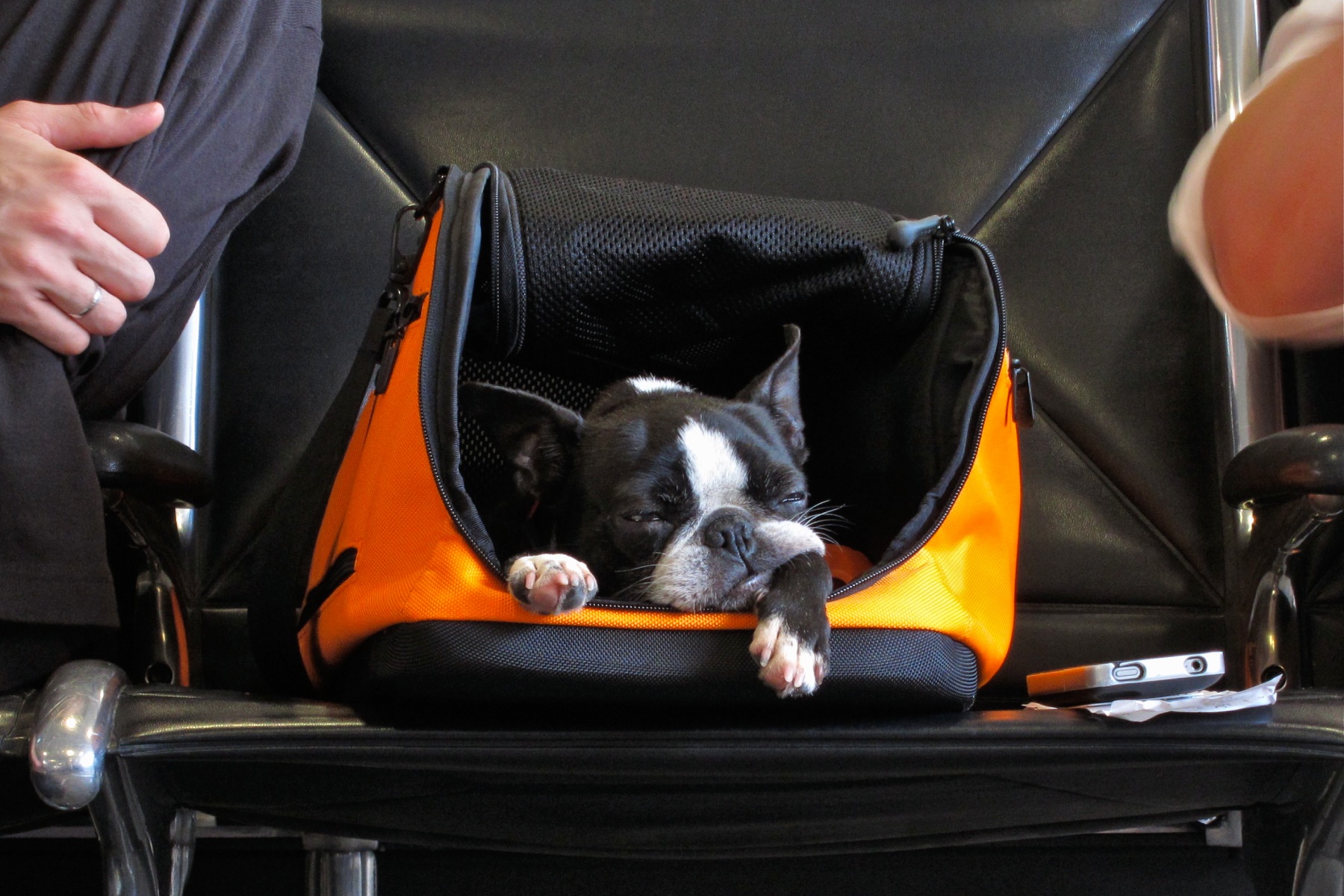
However, the animal must come from a registered establishment within an authorized non-EU country.
Dogs, cats, and ferrets coming from non-EU countries or territories must also undergo a rabies antibody test conducted by an authorized veterinarian. They must also undergo a clinical examination within 48 hours prior to the time of dispatch to verify that they show no signs of disease.
Dogs must also be treated for the parasite Echinococcus multilocularis prior to entering Luxembourg.
You can find all the requirements for importing an animal from a non-EU country here.
Traveling to Luxembourg with pets
Naturally, your travel options will depend on where you are coming from and the type of pet you have. For instance, if you are moving to Luxembourg from a neighboring, you might want to consider driving. However, if you are coming from further afield, flying with your companion may be your best option.
Depending on the size of your pet and its weight, it may be able to travel with you; either in the cabin or in the hold below. Notably, guide dogs are allowed to travel in the cabin with their owners.
If a dog is allowed in the cabin, most airlines require them to be able to fit in the space under the seat in front of you. Of course, it is best to contact the airline directly to check their policy for traveling with pets. To help you get started, you might want to look into flying with one of these pet-friendly airlines in Europe.
If you would rather avoid the hassle of transporting your pet yourself, you might be tempted to hire a pet relocation service. That way, you can let the professionals handle all the logistics and paperwork to ensure that your little companion is safely delivered to your new home. You can read more about how pet relocation companies work in our article on how to move your furry friend abroad.
Pet arrivals in Luxembourg
There are a few things you will need to arrange once you and your pet arrive in Luxembourg. Provided that the animal meets the following requirements, it will not need to be quarantined:
- The cat, dog, or ferret received a rabies vaccine 21 days prior to travel
- Your pet has an official health certificate from the country of origin
- Your pet has been microchipped or has a clearly legible tattoo from before 3 July 2011
- Your pet has been treated for Echinococcus multilocularis
If you own a dog, you must also register it with the local municipality within one month of arriving in Luxembourg.
Registering your pet in Luxembourg
You can register your dog through your local communal administration in Luxembourg. You should contact them in advance to verify that you have all the correct documents and to schedule an appointment if possible.
Generally, you will need a veterinary certificate documenting the dog’s breed, the microchip number, its current vaccination status, and whether it is potentially dangerous. You will also need to provide proof of liability insurance in case your dog causes damage to a person or someone’s property.
Once this is all completed, you will receive a receipt signed by the mayor of your commune, which will serve as proof of registration.
Pet passports
Once you and your pet are living in Luxembourg, it is advisable to apply for an EU Pet Passport, if you don’t already have one. This will simplify travel, especially within the European Union.
You will need to visit an approved vet in Luxembourg who will certify that your dog is microchipped and is up-to-date with its rabies vaccine and boosters.
Once the vet is satisfied, you will receive your EU Pet Passport. The length and cost of the process can vary, so be sure to ask the vet directly when you are searching for one in your area.
Pet healthcare in Luxembourg
Pet insurance
While pet insurance is not mandatory in Luxembourg – unless you own a dog – it can be helpful if your pet gets sick or needs to see a veterinarian.
That said, there are limited options when it comes to pet insurance providers. AXA is the main provider of pet insurance for cats and dogs in Luxembourg. You can find annual insurance quotes starting from around €140 for cats and around €160 for dogs.
Veterinary services
Veterinary clinics, which are called clinique vétérinaire in Luxembourg, provide crucial healthcare for pets. This can range from preventative care such as vaccines and check-ups, to more acute care such as after an accident or emergency.

Once you arrive in Luxembourg, it is important to find a reputable vet that you trust and one that is close enough to assist you in the event of an emergency. You might want to use the following resources to find a licensed veterinarian:
- LAK – for finding vets in emergency situations
- Yellow Pages – a directory of vets in Luxembourg
If you find yourself in an urgent situation with your pet, remember that you can always call the emergency services in Luxembourg at 112.
Vaccinations
As mentioned, all cats, dogs, and ferrets living in Luxembourg must be vaccinated against rabies. Veterinarians in the country usually recommend vaccinating animals against rabies at least once every two years. There are also some optional, but recommended, vaccines, as follows:
- Cats – panleukopenia, rhinotracheitis, calicivirus, and CVR
- Dogs – hepatitis, plague, adenovirus, parainfluenza, parvovirus, and leptospirosis
It is best to book these vaccines and make sure that you are on schedule, with your pet’s veterinarian.
Neutering and spaying
Interestingly, Luxembourg has different spaying rules for cats and dogs. Although it is recommended for dogs, it is not mandatory. Cats, on the other hand, must be spayed or castrated. This usually costs around €300 but could be less if you have insurance.
To book this service, you can contact your veterinarian who will be able to explain more about the procedure, cost, and recovery process.
Pet shops in Luxembourg
If you may want to buy your pet food, supplements, accessories, toys, or grooming tools, there are a few options to explore in Luxembourg.
For instance, Paws Up is a great online store that sells products for cats and dogs. Meanwhile, Boutique J Christnach sells outdoor (human) apparel as well as food, accessories, and grooming services for cats and dogs.
Another online retailer, Zooplus, also has plenty of pet supplies for cats, dogs, horses, fish, and birds – and will deliver to Luxembourg.
Pet services in Luxembourg
Fortunately, there are plenty of ways to care for your pet in Luxembourg. Various companies offer a range of services such as dog-walking, pet grooming, and pet-sitting. Some great options include Lux Pets, Pet Service, and Zare-Schlass.
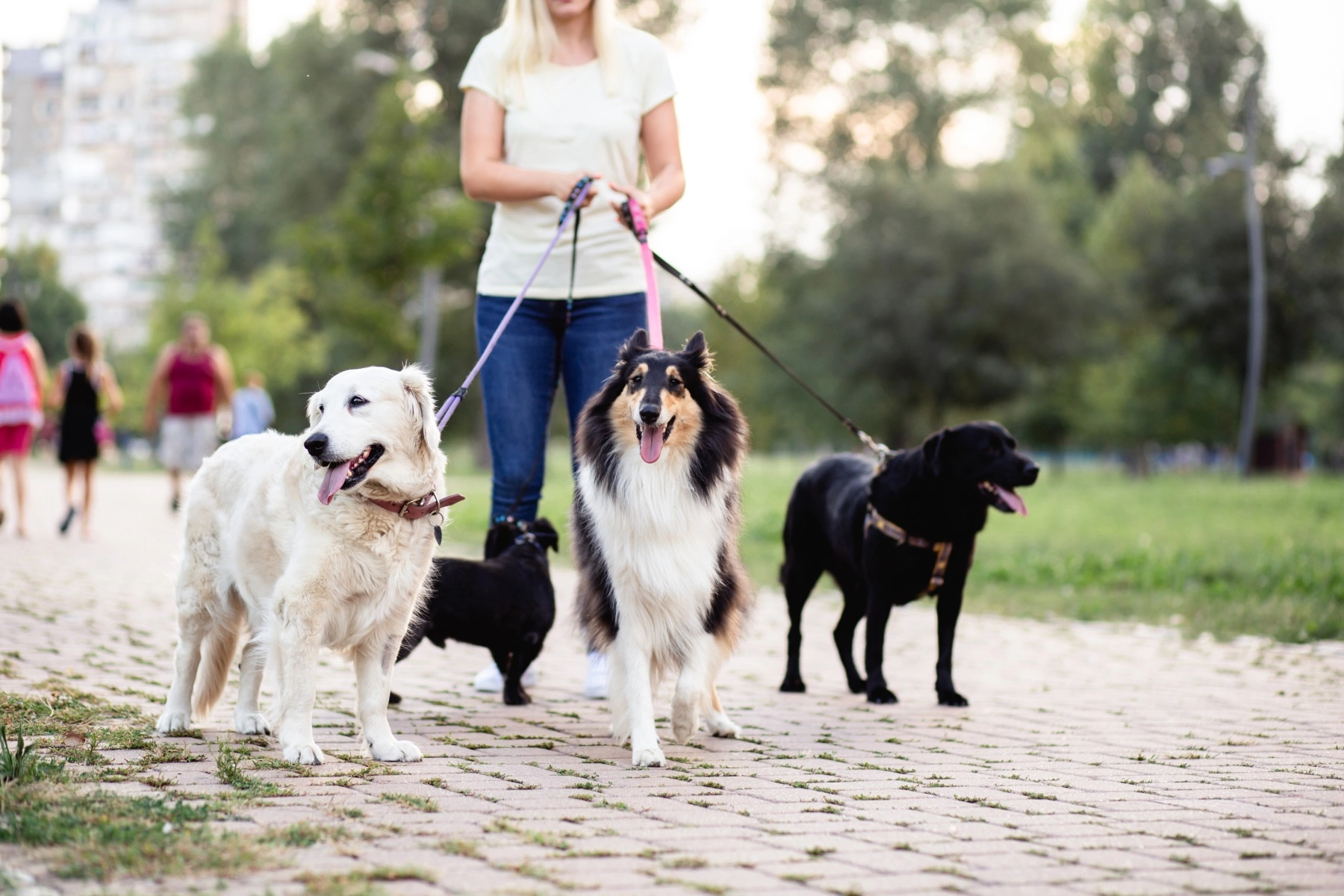
If you are looking to go on holiday, you will need to find someone to care for your furry friend. Some people like to send their pets to boarding houses, such as Doggy@Petz or House of Dogs. Others, meanwhile, prefer to keep their pet in a familiar environment and have someone come to their house.
You can search the PetBacker directory for the best dog house sitter prices and cat sitter prices.
Lost pets in Luxembourg
If you find a lost pet and feel comfortable approaching it, there are a few things you can do.
First, you can check its collar to see if it has a name, phone number, or address. Alternatively, you can take the animal to a nearby vet, who will be able to scan the microchip and find the owner.
If you find a wild animal in distress, you can contact the ASBL natur&ëmwelt, a non-profit that will be able to advise you on the best course of action. If you find an injured animal on the street, you can also call the main emergency number at 112, and an on-duty vet will assist you.
You can take the following steps if your pet goes missing:
- Call the police and leave your number with them in case someone reports finding your pet
- Contact nearby animal shelters such as Asile which allows you to submit lost and found bulletins
- Post on Facebook, Twitter, Instagram, or any social media you have with a recent photo
The costs of keeping pets
Having a pet brings amazing benefits, including companionship and love. However, it is important to factor in the costs of maintaining one.
Of course, it is your responsibility to take good care of your pet, wherever you live in the world. However, Luxembourg’s strict pet laws require that you take extra measures to ensure that you respect its dignity as a living being. This includes meeting its food, housing, and exercise requirements.
Here are some general costs you should keep in mind:
- Annual dog tax – at least €10 which is paid to the commune; it can be more in certain communes
- Annual vet visits – these could range from €35 to €50 per consultation, not including any required treatments or products
- Pet care products – around €5 to €15 depending on the animal’s needs. These products may include cat litter, a leash, bowls, transport crates, pet shampoo, and more.
- Pet food – anywhere from €20 to €100 per month, depending on the animal and any dietary restrictions
- Third-party liability insurance – this is mandatory if you have a dog, and optional if you don’t. This cost will vary based on the company; in some cases, you can add it to your home insurance
Selling a pet in Luxembourg
Because there are no specific regulations in Luxembourg concerning online advertising, there isn’t one centralized place to sell pets. That said, selling them in pet shops, on the street, or in markets is against the law.
Therefore, if you are looking to sell a pet, your best bet may be to do so to a close friend or someone in your expat circle. This way, you can make sure that your furry friend will be going to a safe and caring home.
Just keep in mind that the sale of a dog must be reported to the commune and the new owner must register the dog under their name with the commune within one month. As the previous owner, you will also need to provide your registration receipt to the new owner.
Useful resources
- Fédération Cynologique Luxembourgeoise (FCL) – the dog breeders association
- Guichet – provides a list of local communes in Luxembourg
- Lux-Cat-Club (FFL) – the cat breeders association
- Luxembourg Veterinary and Food Administration (ALVA) – the government body in charge of inspections related to animals and pets in Luxembourg
